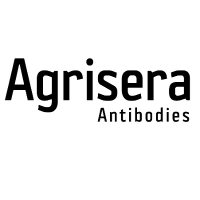Expression of Recombinant Proteinase Inhibitors in Plants
互联网
648
The importance of proteolytic enzymes in plant-pest and plant-pathogen interactions has recently been recognized, and control strategies based on their inhibition with protease inhibitors (PIs) have been developed or proposed to control herbivory insects (1 ), plant parasitic fungi (2 ,3 ), and nematodes (4 ). The various roles of proteases in these organisms and the biochemical pathways affected by their interactions with PIs may differ, but their importance for normal growth and development is now evident. The repressive effects of PIs on insect growth and fecundity, notably, have been documented for several species (1 ), and evidence for the implication of microbial proteases as phytopathogenic determinants has been reported in several cases (5 –13 ). Based on this information, transformation of plant genomes with PI cDNA clones appears to be an attractive approach for the control of plant pests and pathogens, and several economically important plants expressing exogenous plant PIs have been engineered during the past few years (Table 1 ). While allowing control of plant pests and pathogens, PIs expressed in transgenic plants may also serve as a source of active inhibitors for the study and the eventual control of some protease-related pathogenic processes in humans. Proteases are important not only in the intracellular regulation of peptides and proteins, but also in the development of several diseases, including tumor metastasis (21 ), rheumatoid arthritis (22 ,23 ), Alzheimer’s disease (24 ), emphysema (25 ), pancreatitis (26 ), and AIDS (27 ,28 ).
a Active recombinant inhibitors in planta have been detected in each case.
b Adverse effects against growth, development, and/or fecundity of herbivory insects have been demonstrated.
c Adverse effects against growth, development, and/or fecundity of the plant parasitic nematode Globodera pallida have been demonstrated.








